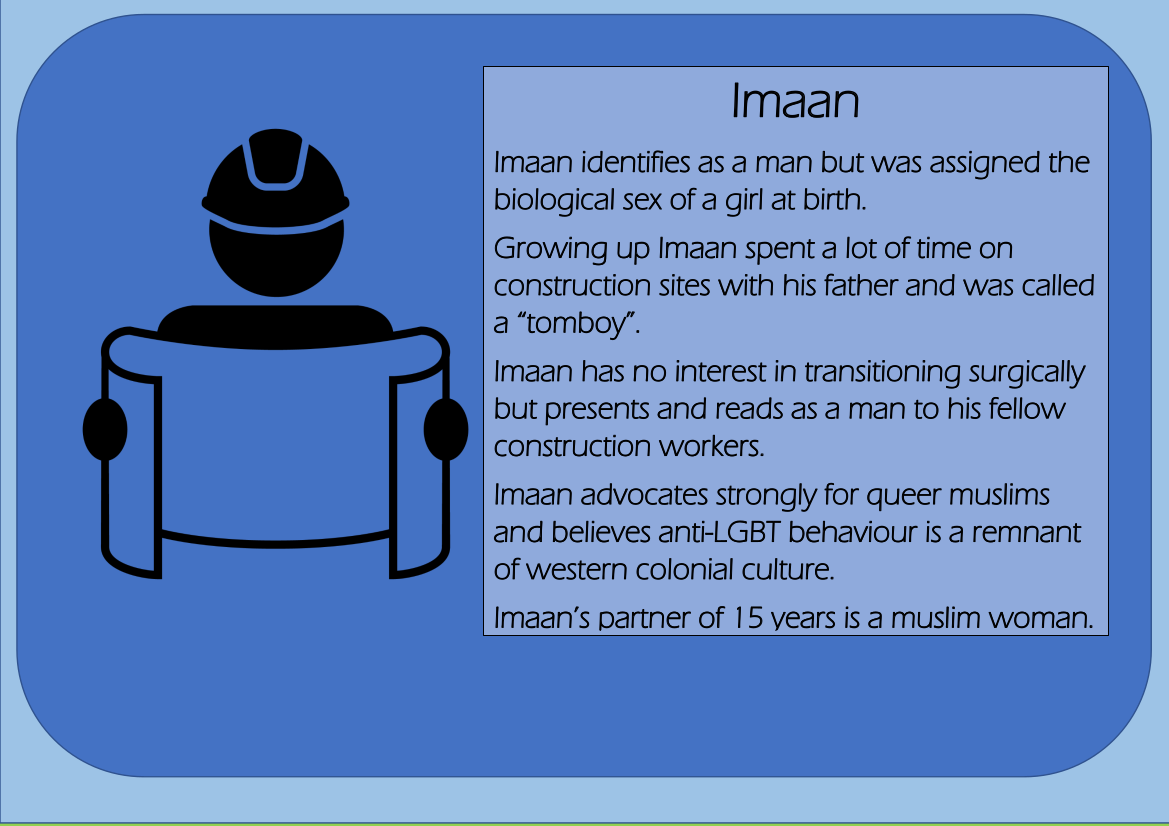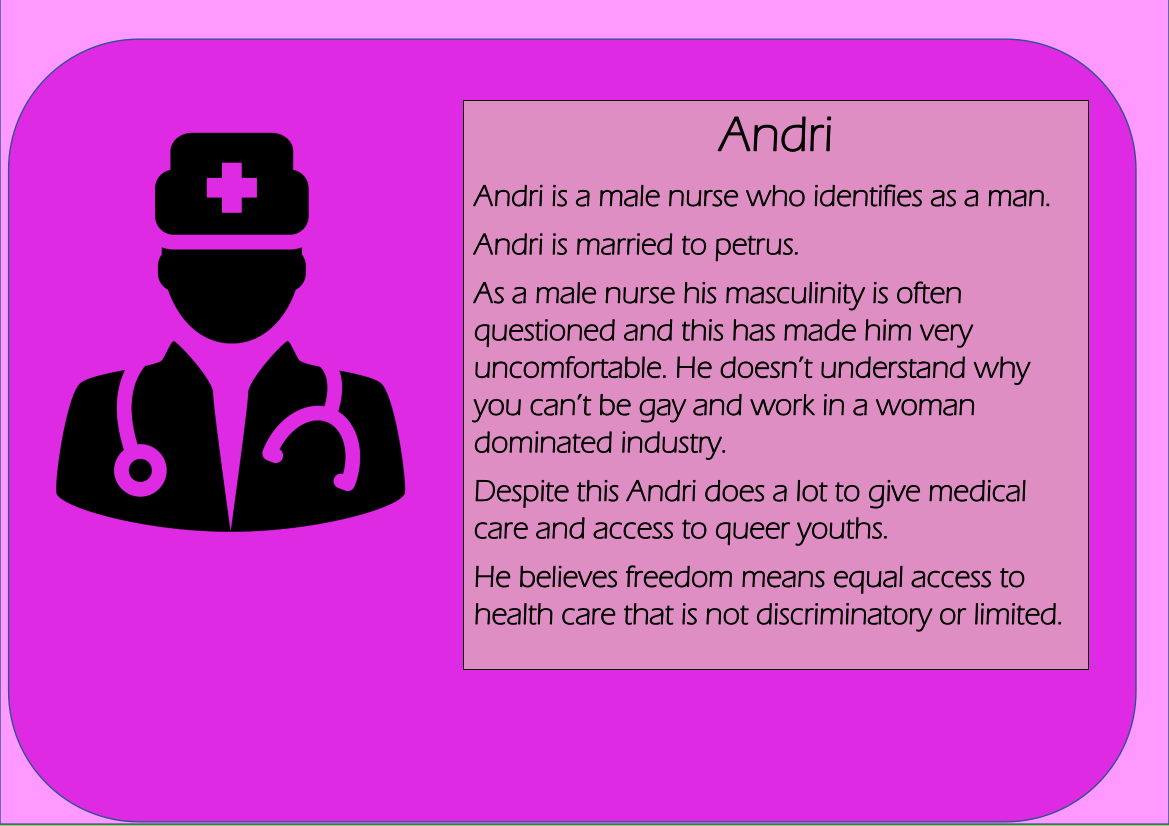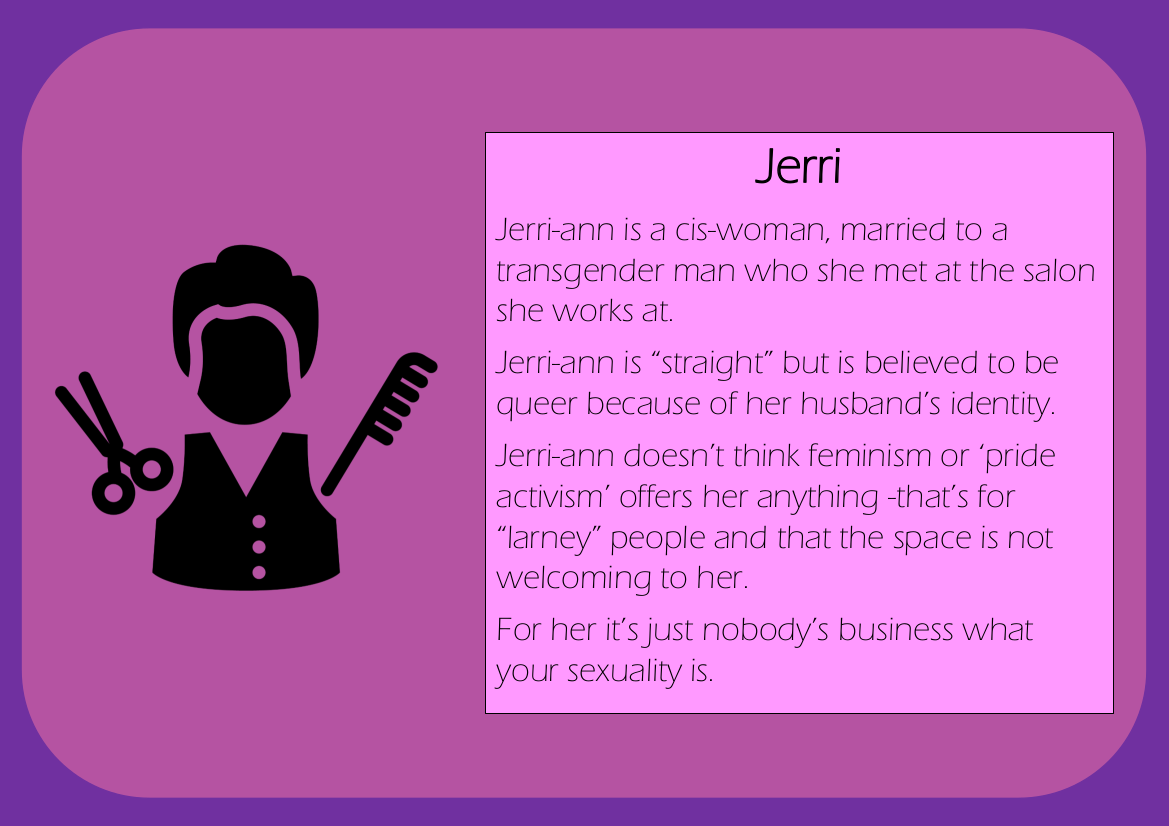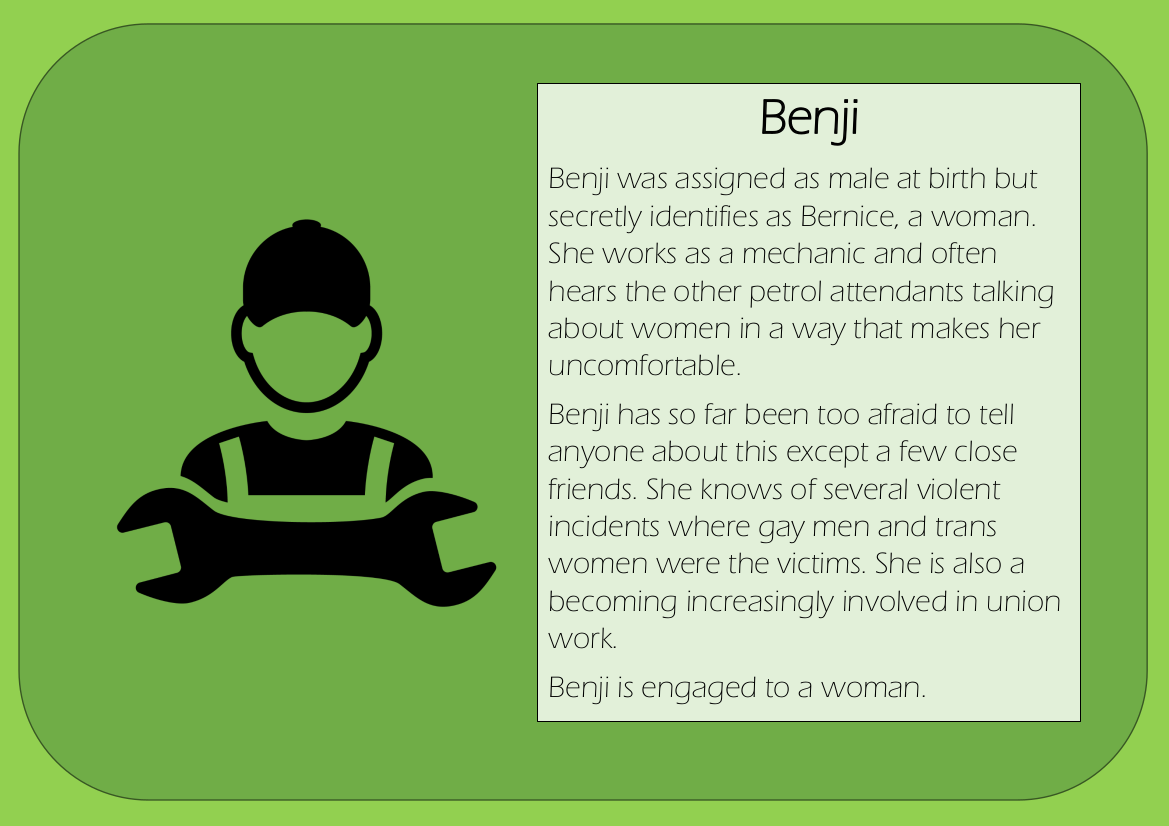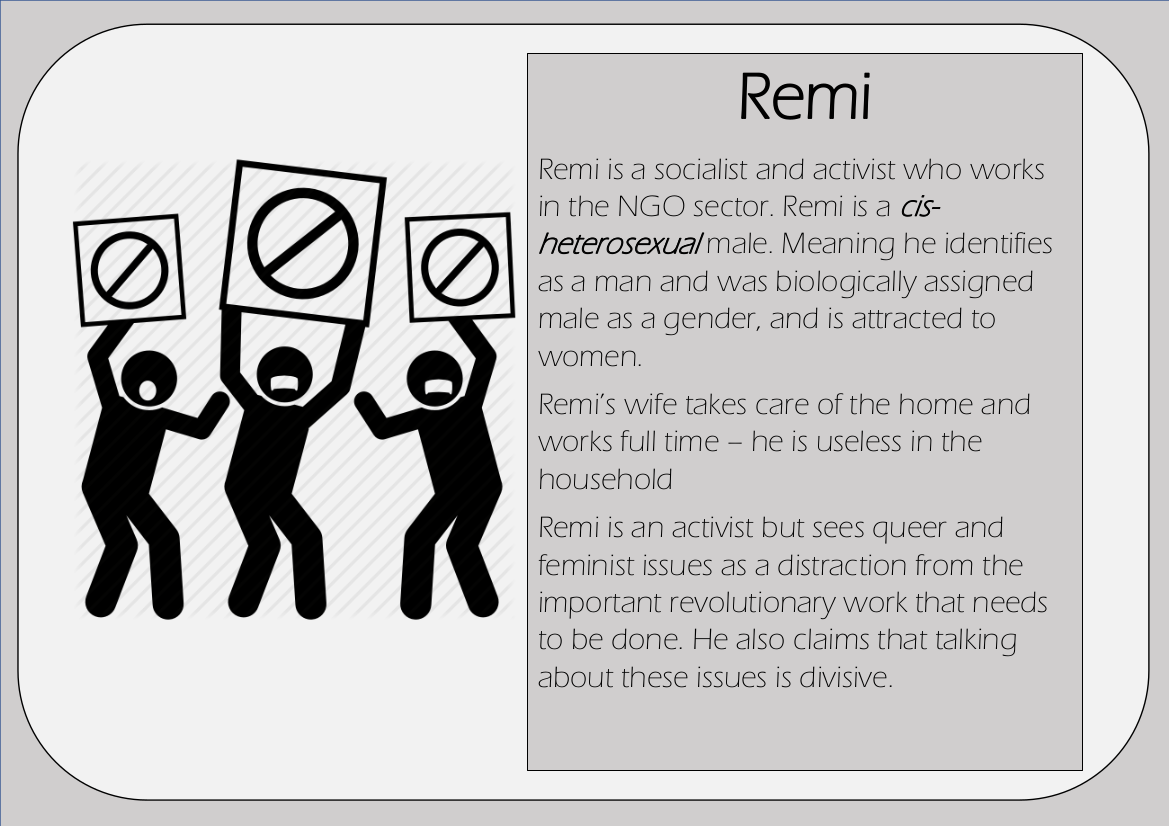2 hours 30 minutes
Aims
To help us to understand how queer theory has put the feminist conception of freedom under scrutiny and has highlighted its blind-spots.
About
Different strands of feminism have challenged dominant conceptions of freedom in various ways. These contributions have enriched and broadened notions of freedom, or at least given us the tools to challenge exclusions. But feminism has also been open to scrutiny and fierce critique about its blind-spots and marginalisations. One of the ways that this has been done is through queer theory. In this activity, we look at the three core ‘subversive’ contributions that queer theory makes in conversation with the feminist tradition.
Task 1
Working in buzz groups, you will be given a character card describing an individual and their way of life.
Familiarise yourself with the character and answer the following questions:
What is notable about your character and what does the character’s lifestyle reveal about their sex and gender?
What assumptions are made in your group about this character’s sex and gender?
Prepare to report to plenary.
You will have 15 minutes to complete this task
Task 2
The facilitator will make a multi-modal presentation highlighting the three core contributions that queer theory makes in its critique of the feminist tradition’s conceptions of freedom. These are:
- Gender is a spectrum
- ‘Woman’ as an organising category
- Freedom from dominant norms around sex and gender
The presentation will run for 45 minutes
Task 3
In 6 groups you will read the Huff Post article titled: Freedom for the Queer Community: ‘I struggle to imagine a safe space’ detailing queer experiences for South Africans today.
As a group outline how queer South Africans’ freedoms are limited – referencing the article.
Then as a group read and reflect on Judith Butler’s article: The Backlash Against “gender ideology” must stop in the New Statesman, January 2019.
Using Butler’s argument discuss how Butler’s conception of freedom might widen possibilities for those fighting for queer freedoms in South Africa today.
You will have 45 minutes to read followed by a 30 minutes plenary session.
📖️ Readings
- Piantato, G (2016) ‘How has queer theory influenced the ways we think about gender?’ (as PDF), Working Paper of Public Health.
